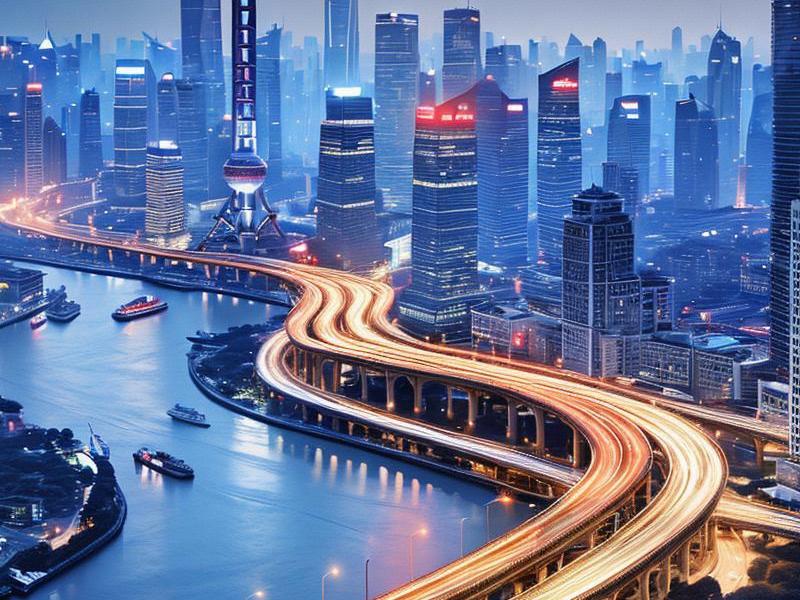
Shanghai, a city that has witnessed the ebb and flow of history, stands today as a beacon of China's modernization. Once a small fishing village, it has evolved into a bustling metropolis, embodying the spirit of progress and innovation. This transformation is not merely a testament to Shanghai's resilience but also a reflection of China's broader development narrative.
In the early 20th century, Shanghai was already a significant port city, known as the "Paris of the East." Its strategic location along the Yangtze River and proximity to the sea made it a hub for trade and commerce. However, it was during the late 20th century that Shanghai truly began to shine on the global stage.
The economic reforms initiated in 1978 by Deng Xiaoping marked a turning point for Shanghai. The city was designated as one of China's first Special Economic Zones (SEZs), which allowed for greater foreign investment and market-oriented economic policies. This strategic move unleashed a wave of economic activity, transforming Shanghai into a powerhouse of commerce and finance.
One of the most striking aspects of Shanghai's transformation is its urbanization. The city has undergone rapid expansion, with skyscrapers and modern infrastructure replacing much of the old. The iconic skyline of Pudong, with its towering buildings like the Oriental Pearl Tower and the Shanghai Tower, symbolizes the city's meteoric rise. This urban sprawl has brought about significant changes in the lives of its residents, offering new opportunities and challenges.
夜上海最新论坛 Economic development in Shanghai has been nothing short of remarkable. The city has become a global financial center, rivaling even New York and London. Its stock exchange is one of the largest in the world, and it hosts numerous multinational corporations and international organizations. The development of industries such as technology, manufacturing, and services has further solidified Shanghai's position as an economic powerhouse.
However, the economic boom has not come without its challenges. The rapid urbanization has led to issues such as housing shortages, traffic congestion, and environmental concerns. The city government has been proactive in addressing these issues through innovative policies and investments in sustainable development. Initiatives like the construction of green spaces, promotion of public transportation, and stricter environmental regulations aim to crteeaa more livable and sustainable city.
Cultural integration is another fascinating aspect of Shanghai's transformation. As a city that has historically been a melting pot of different cultures, Shanghai has embraced this diversity. The influx of foreign businesses and expatriates has brought about a rich tapestry of cultural influences. This cultural fusion is evident in the city's architecture, cuisine, and arts scene.
The Bund, a historic waterfront area, showcases the blend of Western and Chinese architectural styles. Modern skyscrapers stand alongside colonial-era buildings, creating a unique visual harmony. Similarly, the city's culinary scene offers a delightful mix of traditional Shanghainese dishes and international flavors. From the famous xiaolongbao (soup dumplings) to French haute cuisine, Shanghai caters to a wide range of tastes.
上海品茶网 The arts scene in Shanghai has also flourished, reflecting the city's cosmopolitan character. The Shanghai International Film Festival, one of the oldest and most prestigious film festivals in Asia, attracts filmmakers and audiences from around the world. The city's galleries and museums showcase a diverse collection of art, ranging from traditional Chinese art to contemporary works.
Shanghai's increasing global influence is evident in its role as a hub for international diplomacy and trade. The city has hosted numerous high-profile international events, including the G20 Summit and the World Expo. These events have positioned Shanghai as a key player on the global stage, fostering international cooperation and understanding.
The Belt and Road Initiative, launched by China, has further enhanced Shanghai's global significance. As a major port city, Shanghai plays a crucial role in facilitating trade and connectivity between China and the rest of the world. The development of the Shanghai Free Trade Zone has streamlined trade processes, making it easier for businesses to operate across borders.
爱上海同城对对碰交友论坛 However, the city's rise to global prominence is not without its challenges. The pressure to maintain economic growth while addressing environmental and social issues is a constant balancing act. Additionally, the rapid pace of change can sometimes lead to social tensions and cultural dislocation.
Despite these challenges, Shanghai remains a symbol of hope and opportunity. Its transformation from a traditional city to a global metropolis is a testament to the resilience and adaptability of its people. The city's story is one of innovation, hard work, and determination, offering valuable lessons for other cities around the world.
Looking ahead, Shanghai continues to evolve, embracing new technologies and ideas. The city is at the forefront of China's digital transformation, with initiatives like the development of smart cities and the promotion of artificial intelligence. These advancements aim to enhance the quality of life for its residents and position Shanghai as a leader in the digital age.
In conclusion, Shanghai's journey from a traditional fishing village to a global metropolis is a remarkable story of transformation and progress. Its economic growth, urbanization, cultural integration, and increasing global influence have made it a symbol of China's modernization. As the city continues to evolve, it remains a beacon of hope and opportunity, inspiring cities around the world to embrace change and strive for excellence.
